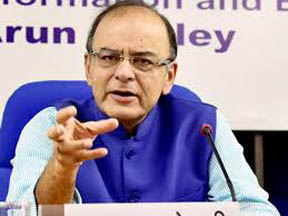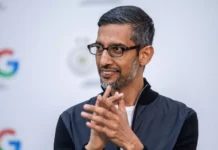 NEW DELHI: In the highly competitive scenario for news organizations, the desire to be watched more can lead to shrillness and hype where the other side of the picture is ignored, Information and Broadcasting Minister Arun Jaitley today said.
NEW DELHI: In the highly competitive scenario for news organizations, the desire to be watched more can lead to shrillness and hype where the other side of the picture is ignored, Information and Broadcasting Minister Arun Jaitley today said.
The viewer, he however added, has freedom to decide which version is closer to reality and it is here that the “conventionalists have a chance to hit back”.
The I&B minister was addressing a seminar organized by the Indian Institute of Mass Communication (IIMC) here on ‘Establishment of a Communication University’. Jaitley said that the best training a journalist can get is only when he is on his feet in the field.
The media, he said, in Indian democracy from just being an informant has become a participant who partly lays down the agenda. “Whether good or bad, not in a position to sit on judgment,” Jaitley said.
The Minister said that if news channels have to compete with each other, there comes in the desire to create hype, which can be done through controversies, celebrities or important crime events being highlighted.
“This necessarily leads to shrillness. In a shrill debate, the other side of the picture is not known.
And if the epidemic of shrillness spreads than channel across channel, you will find only one viewpoint…. And if there is a legitimate alternative viewpoint, how do you fill in the gap for that?” Jaitley asked.
He said the advent of news camera has changed the definition of news to “what the camera can capture”.
He added that even if one looks at conventional media, a policemen throwing a stone or singer having made a tweet found more prominence than the results of British elections.
Jaitley referred to the absence of adequate “financial model” as a real challenge saying that while digital media is still struggling to find such a model, in electronic media the cost of distribution is higher than the cost of content.
In such a situation, the cost of content can be obviously compromised, he said.
The I&B minister said that there are a number of public issues currently being debated, but he was choosing not to express himself because he feels not adequately informed.
“It is only when the shrillness dilutes a little, there will be space for the other viewpoint,” he said.
Jaitley said that another challenge is that while many organizations will maintain priorities, some could compromise resulting in instances like ‘paid news’, which seem highly prevalent particularly during elections
“Is there a way we can check it or the Broadcasting (Content) Complaints Council can check it. I have very serious doubts,” Jaitley said.
A decade and a half ago, Jaitley said, the Supreme Court in a judgment, which he thought was more on the lines of American precedent, decided commercial speech is also free speech.
“So those, who market paid news might find this interpretation of the Supreme Court coming to their aid if the Broadcasting Complaints Council were to proceed against paid news because that is commercial speech,” he said, adding that the particular judgment was in context of advertising.
Speaking further, he said the viewer or reader can dissect various version of news and see which is closest to reality and here is an opportunity for conventionalists to hit back.
“I have not the least doubt,” Jaitley said, “that the space for that conventional news is again going to emerge rather than to what I refer as anchor driven news or that which revolves around only one or two events.
“You have the same twenty faces on twenty different channels pontificating their views every evening. So there is a space for us to turn over and find out if there is a new face saying something different this evening,” he said.
Commenting in a lighter vein, he said that mornings are more sober and it is in the evening that the mood heats up and campaigns begin to build up.
Speaking about the need for training institutions in journalism, Jaitley said while people trained in various forms of reporting in various languages are needed, the best training for a journalist always comes when he is on his feet.
He said when a journalist is on his feet, either he stays grounded completely and sticks to his kind of reporting or he gets swayed that some people are overtaking him and therefore he has to outdo them.
“And that kind of training, I don’t know, if a University can probably provide to them. And that’s the training he’s gonna get while he is on his feet actually reporting events,” Jaitley said while highlighting the need to discuss issues related to media, including the need for more structured training before entering the field. (More) PTI ADS
Earlier, speaking at the event where Broadcasting Content Complaints Council (BCCC) chief Justice Mukul Mudgal was also present, I&B secretary Bimal Julka said that with over 800 TV channels, thousands of newspapers, the media and entertainment sector is very vibrant.
He said that in the coming time there will be increasing need for professionals who will be able to transcend various platforms.
Media education should also address issues like “yellow journalism”, “tendency to sensationalize” and also “paid news”, he said.
On the issue of content regulation, Julka said that it is considered that self regulation is the best way.
Speaking regarding establishment of a Communication University, he sought views saying a broad consensus is needed and said that questions like whether such an institution should be a government one, private or a public-private body, needs to be pondered over.
Mudgal mooted for an institution on the lines of IIT, IIM where students right after school are taken in. He asserted that such an institution should be in the government sector.–PTI






